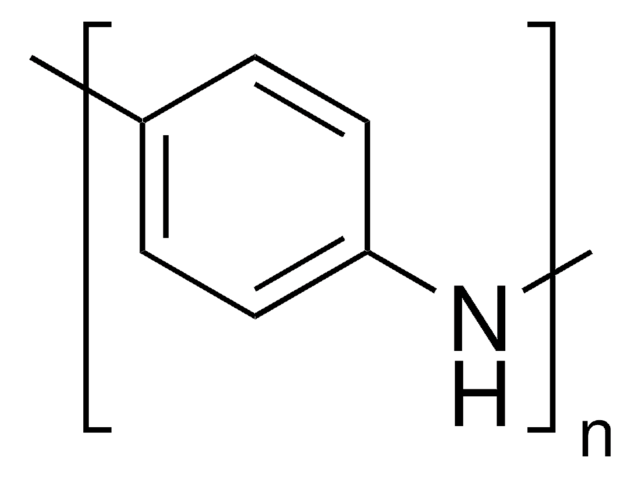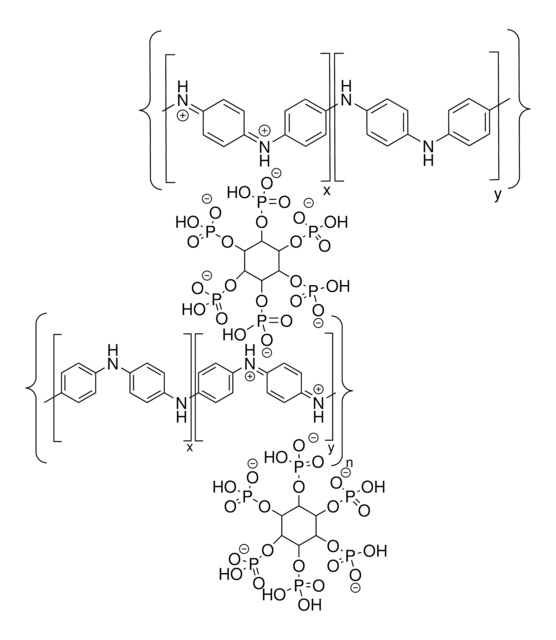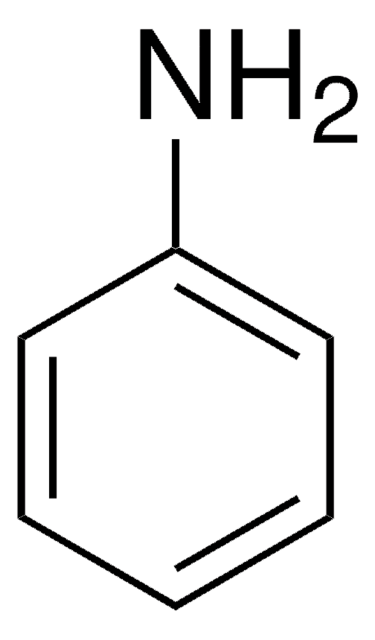530565
Polyanilin(emeraldinsalz)
composite (20 wt.% polyaniline on carbon black)
Synonym(e):
PANI
About This Item
Empfohlene Produkte
Enthält
proprietary organic sulfonic acid
Leitfähigkeit
30 S/cm (pressed pellet)
mp (Schmelzpunkt)
>300 °C (lit.)
Suchen Sie nach ähnlichen Produkten? Aufrufen Leitfaden zum Produktvergleich
Allgemeine Beschreibung
Anwendung
Verpackung
Lagerklassenschlüssel
11 - Combustible Solids
WGK
WGK 3
Flammpunkt (°F)
Not applicable
Flammpunkt (°C)
Not applicable
Persönliche Schutzausrüstung
Eyeshields, Gloves, type N95 (US)
Hier finden Sie alle aktuellen Versionen:
Besitzen Sie dieses Produkt bereits?
In der Dokumentenbibliothek finden Sie die Dokumentation zu den Produkten, die Sie kürzlich erworben haben.
Kunden haben sich ebenfalls angesehen
Artikel
The application of conducting polymers at the interface with biology is an exciting new trend in organic electronics research.
While dye sensitization as the basis for color photography has been accepted for a very long time,1 attempts to use this principle for the conversion of solar light to electricity generally had resulted only in very low photocurrents, below 100 nA/cm
For several decades, the need for an environmentally sustainable and commercially viable source of energy has driven extensive research aimed at achieving high efficiency power generation systems that can be manufactured at low cost.
Unser Team von Wissenschaftlern verfügt über Erfahrung in allen Forschungsbereichen einschließlich Life Science, Materialwissenschaften, chemischer Synthese, Chromatographie, Analytik und vielen mehr..
Setzen Sie sich mit dem technischen Dienst in Verbindung.





